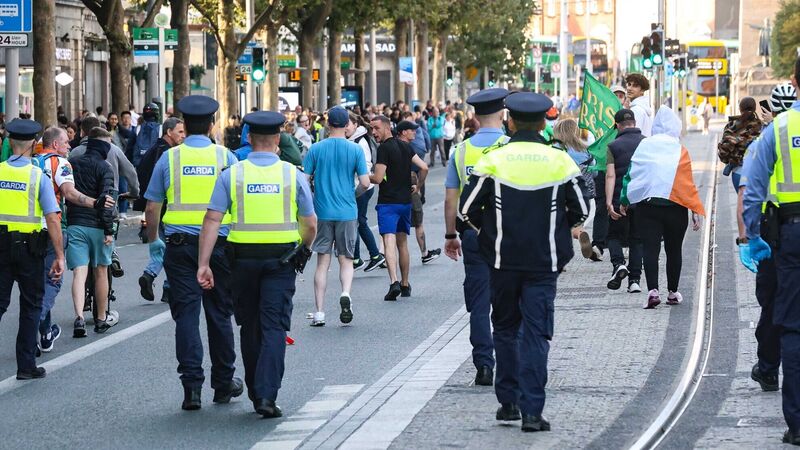Irish far right may fail at the polls, but use social media effectively to spread hate, says research

Anti-immigration protestors on Dublin's O'Connell Street last year. Academics in University College Cork said there has been 'an increase' in both far-right and extreme right-wing activity in Ireland in recent years - seen in online activism, street protests, and 'even violence'. File photo: Sasko Lazarov / © RollingNews.ie
The Irish far right may not be having success in national politics but it is using the online world to “build its base” and to spread “ideologies of hate”, according to new research.
Academics in University College Cork (UCC) said there has been “an increase” in both far-right and extreme right-wing activity in Ireland in recent years - seen in online activism, street protests, and “even violence”.
“Although there is a longstanding belief that there is no far-right presence in Ireland because the country has so far avoided the presence of any successful far-right parties in national politics, this article demonstrates that Irish far-right networks are using online platforms to build their base, discuss and disseminate misinformation, conspiracy theories, and divisive and discriminatory rhetoric," the research said.
The study was carried out by academics from UCC Department of Sociology and Criminology - Gabriella Fattibene, James Windle and Orla Lynch - and technical experts from online threat monitoring company, Moonshot.
It said the “most prominent” manifestation of far-right activity in Ireland is online, including though social media influencers. These individuals create content of interest to their online audience through videos, livestreaming and interviews.
The research, published in , said the Irish political system has resulted in no far-right political party emerging on the scene, in terms of successful representation.
But it said the aim of many on the far-right or alt-right is to get people to think about politics rather than change party politics, by getting issues they want to push into normal, mainstream society.
The research said:
“The evidence from this study demonstrates that the goal of the far right in Ireland is to, if not succeed politically, succeed in influencing metapolitics in creating distrust in mainstream institutions and political parties.
"Like many of their ERW [extreme right-wing] colleagues in Europe, mainstreaming ERW ideas is success in its own right.”
The research conducted a detailed analysis during covid and identified over 420,000 posts in 162 far-right online spaces, mainly Twitter (now X) and Telegram.
The research identified 39 unique far-right influencers, mainly Irish, British, or American figures.













